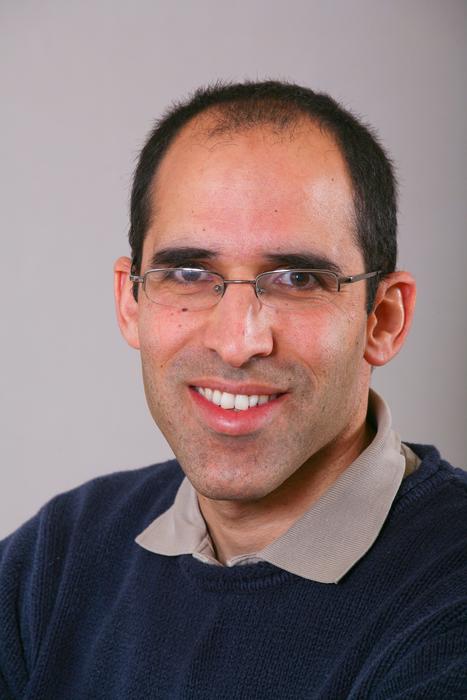The Hebrew University of Jerusalem proudly announces the election of Professor Eran Meshorer as a new member of EMBO (European Molecular Biology Organization), a highly esteemed institution that recognizes preeminent life sciences researchers from Europe and beyond. This distinguished honor underscores the profound impact of Prof. Meshorer’s pioneering work in epigenetics and stem cell biology, fields that are reshaping our understanding of gene regulation, cellular identity, and developmental processes at the molecular level.
Prof. Meshorer’s election carries special resonance at a time when Israel’s scientific community continues to thrive amid considerable societal and geopolitical challenges. According to Prof. Tamir Sheafer, Rector of The Hebrew University, this recognition is not merely an individual accolade but a testament to the university’s dedication to scientific excellence and innovation. The election highlights the resilience and global reach of Hebrew University researchers, showcasing their ability to conduct impactful, cutting-edge science that transcends borders and politics.
The scientific heart of Prof. Meshorer’s research lies in unraveling the epigenetic mechanisms that govern chromatin structure and dynamics, particularly in embryonic stem cells. His laboratory explores how the plasticity of chromatin—the complex of DNA and proteins within the cell nucleus—regulates gene expression programs essential for stem cell pluripotency, differentiation pathways, and ultimately, cell fate decisions. This realm of biology is vital for understanding how a single genome can produce the diverse cell types required during development and tissue homeostasis.
Diving deeper into chromatin biology, Prof. Meshorer’s work elucidates the intricate relationship between histone modifications, DNA methylation, and nucleosome positioning, which together orchestrate the accessibility of genetic information for transcriptional machinery. By applying state-of-the-art genomic technologies, including single-cell epigenomics and chromatin conformation assays, his group maps dynamic changes in chromatin landscapes during neuronal differentiation and in stem cell models of neurodegenerative diseases. These insights are pivotal for uncovering how epigenetic regulation can go awry in pathological states.
One of the hallmarks of Prof. Meshorer’s contribution is the interdisciplinary approach combining molecular genetics, cell biology, and computational genomics. His lab’s discoveries on the maintenance of pluripotency via chromatin remodeling complexes offer compelling evidence of epigenetic flexibility as a cornerstone of stem cell biology. These molecular pathways hold significant promise for regenerative medicine, as modulating epigenetic states could enable controlled differentiation of stem cells into desired lineages, presenting therapeutic avenues for currently incurable neurological conditions.
Beyond classical epigenetics, Prof. Meshorer has notably co-pioneered the emerging field of paleo-epigenetics. By reconstructing DNA methylation patterns in archaic human genomes, including Neanderthals and Denisovans, his research provides unprecedented insight into evolutionary biology and the epigenetic basis of human adaptation. This innovative approach bridges modern molecular biology with anthropology, revealing how epigenetic modifications contributed to species-specific traits and evolutionary divergence.
Prof. Meshorer’s election to EMBO will enhance collaborative opportunities among the international life sciences community, fostering interdisciplinary research aimed at decoding complex biological systems. EMBO membership is awarded not only as a recognition of scientific excellence but also as an invitation to contribute actively to the advancement of molecular biology through joint initiatives, policy shaping, and mentoring young scientists worldwide.
In his own words, Prof. Meshorer expressed deep honor at joining EMBO, emphasizing that this recognition reflects both individual achievement and collective creativity borne from collaborative scientific environments. He anticipates engaging with EMBO’s mission to promote excellence and facilitate cross-border scientific interaction, which he views as essential for tackling the multifaceted challenges in biology and medicine.
The research paradigm championed by Prof. Meshorer addresses fundamental questions in developmental biology: How is genomic information dynamically regulated during cell state transitions? How do epigenetic landscapes sculpt cellular identity and function? His work significantly contributes to decoding the epigenetic language that mediates plasticity and stability within genomes, thus impacting fields ranging from neurobiology to regenerative therapeutics.
The translation of Prof. Meshorer’s findings into disease contexts is particularly impactful in neurodegenerative disorders, where epigenomic dysregulation may underlie pathological neuronal degeneration. By employing stem cell-derived neuronal models, his research elucidates molecular mechanisms that could be harnessed for interventions aiming to restore epigenetic balance and neuronal function, offering hope for new treatment strategies.
Moreover, Prof. Meshorer’s innovative use of high-resolution epigenetic profiling technologies sets benchmarks for future studies investigating chromatin dynamics. The refinement of these tools allows scientists to capture transient chromatin states and heterogeneous epigenetic landscapes at a single-cell level, thereby pushing forward our understanding of gene regulation in complex tissues and disease.
The Hebrew University lauds Prof. Meshorer’s achievement as emblematic of its enduring commitment to fostering world-class research that propels scientific frontiers. His election to EMBO not only honors his personal scientific journey but also shines a global spotlight on the vibrant life sciences ecosystem nurtured within Israeli academia.
As Prof. Meshorer steps into this new role within EMBO, the scientific community eagerly anticipates his continued contributions towards unraveling the epigenetic codes that govern development and disease. His work epitomizes the fusion of technical innovation and conceptual breakthroughs necessary to solve some of biology’s most challenging puzzles in the 21st century.
Subject of Research: Epigenetics, Chromatin Biology, Stem Cell Pluripotency, Neurodegenerative Diseases, Paleo-epigenetics
Article Title: Prof. Eran Meshorer Elected to EMBO for Groundbreaking Research in Epigenetics and Stem Cell Biology
News Publication Date: Information not provided
Web References: https://mediasvc.eurekalert.org/Api/v1/Multimedia/416529ae-d116-4492-adee-1c336ee69350/Rendition/low-res/Content/Public
Image Credits: Eviatar Klopstock
Keywords: Epigenetics, Chromatin, Stem cell research, Gene expression, Neurodegenerative diseases, Genome plasticity, Developmental biology




